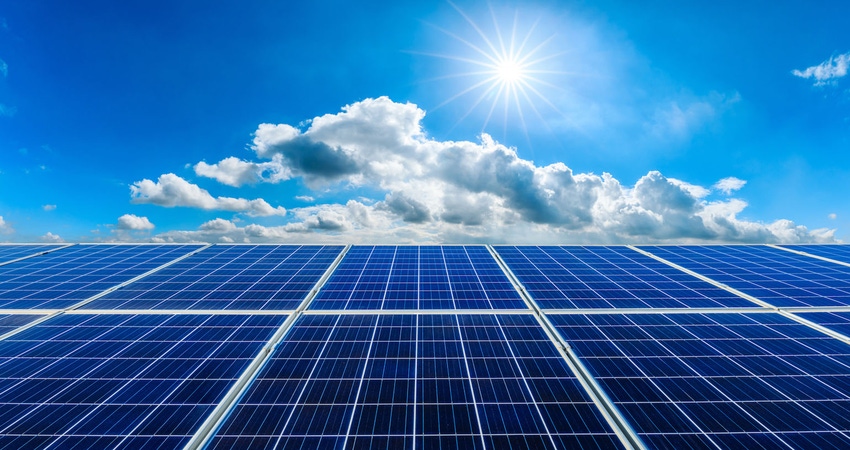The company’s polycarbonate plant in Cartagena, Spain, will be the world’s first large-scale chemical production site to run entirely on renewable power.
July 30, 2020

Sabic’s polycarbonate plant in Cartagena, Spain, is poised to be the world’s first large-scale chemical production site to run entirely on renewable power, the company announced this week. The solar-powered plant is expected be fully operational in 2024 and will help Sabic reach its 2025 clean energy targets.
The deal will see Iberdrola, one of the world’s biggest electricity utility companies, invest almost €70 million to construct a 100-MW solar PV facility with 263,000 panels on land owned by Sabic, making it the largest industrial renewable-power plant in Europe.
The 25-year agreement with Iberdrola represents another milestone in Sabic’s commitment to transition all of its global operations to cleaner energy, said the company in a news release. Its ambition is to have 4 GW of either wind or solar energy installed at its sites globally by 2025, rising to 12 GW by 2030. In 2019, solar panels were installed at Sabic sites in India and Thailand, helping reduce greenhouse emissions by 200 tons. Sabic’s Home of Innovation in Riyadh, Saudi Arabia, has been completely solar-powered since 2015.
“This ground-breaking deal with Iberdrola is a significant step toward achieving our long-term sustainability and clean-energy targets,” said Bob Maughon, Sabic’s Executive Vice President of Sustainability, Technology & Innovation and Chief Technical Officer. “Partnerships of this kind are the cornerstone of our business growth model. The solar PV powered plant in Cartagena demonstrates that Sabic continues to drive the sustainability agenda in the chemicals industry and that a transition on such a large scale is possible,” added Maughon.
The new PV plant will deliver an 80-kt annual reduction in indirect CO2 emissions, and furthers strengthens our support and contribution to wider climate change initiatives like EU 2030 and our alignment with the UN Sustainable Development Goals, Maughon added.
Once the solar plant comes on line, SABIC’s customers, including those in the automotive and construction sectors, will have access to polycarbonate solutions produced with 100% renewable power, further responding to customer and consumer demands for more sustainable solutions in an increasingly carbon-neutral world.
Plans are also underway to install PV technology at SABIC’s global headquarters in Riyadh, and a final-stage feasibility study with Marafiq and the Royal Commission for Jubail and Yanbu is underway to explore a $300 million, 300-megawatt solar array project on the western coast of Saudi Arabia. Once complete, Sabic will take the electricity generated by the plant and deliver it to local chemicals manufacturing plants.
About the Author(s)
You May Also Like


